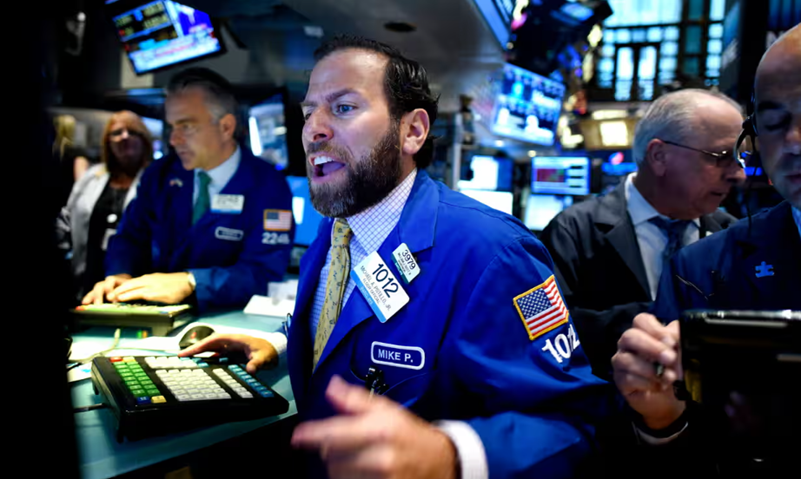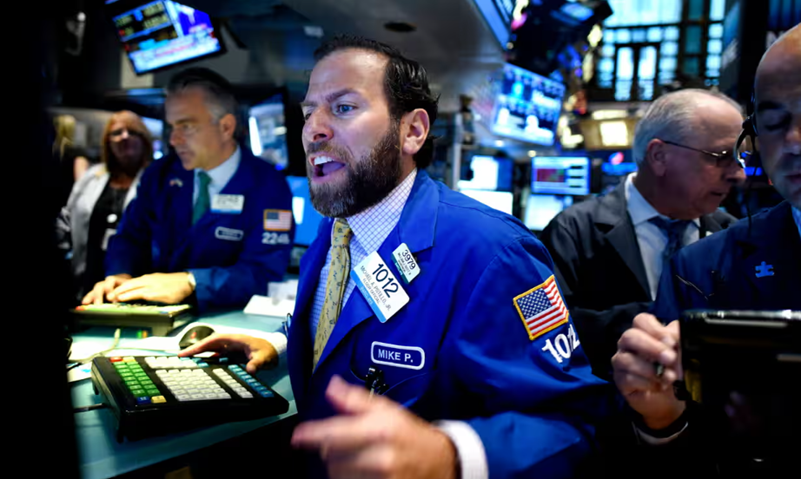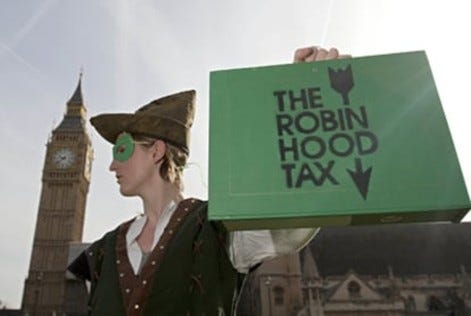Typically, left-wing governments have their plans stymied by the negative reaction of financial markets. But recently it has been right-wing governments instead. In the UK, the financial markets managed to help unseat the short-lived Prime Minister Liz Truss, and more recently the world has been closely watching the reaction of markets to President Trump’s dramatic imposition of tariffs.
The language used is I think quite revealing. It is often very moral in tone. Politicians have to face up to market ‘discipline’. Governments are ‘punished’ by markets. The feeling is that somehow at such moments, markets become a bastion of good sense and enforce good behaviour.
I think though to look to financial markets as somehow a source of sensible salvation, or a counterbalance to political decisions we don’t like, is a really big mistake.
Are markets really the guardians of good behaviour?
For one thing markets are very often the opposite of rational; they are more driven by emotion and instinct than a carefully considered group of rational actors. Again, this is reflected in the language used, which is emotional- markets are ‘spooked’ by government actions, leading to a loss of ‘confidence’.
In a recent blog, the famous economist and inequality guru, Branko Milanovic, asked why Oxfam does not celebrate when the stock market falls. His argument is that financial wealth is extremely unevenly distributed. So, when the stock market falls, and wealth is destroyed, it is the wealth of the richest that suffers, reducing inequality. Why do we not have a party then when the markets take a pounding?
One response is that stocks, shares, bonds and other financial assets are also owned by the middle classes, either directly, as small-scale traders themselves, or more commonly through their pension funds and savings which are bundled up and then invested in financial markets by others. The argument is that this means a collapse in the market hurts ordinary people too. I remember when we were campaigning in 2010 for a tax on all financial transactions (known as the ‘Robin Hood Tax’), I would often be in head-to-head media interviews with representatives of the British Banking Association, and they loved invoking the idea of the little old lady whose pension would be destroyed by our dastardly tax plans.
Being Handcuffed to a Gambler
There is of course some truth to this argument. Since the early eighties, there has been a concerted effort to link the fortunes of ordinary savers to the stock market. The very word ‘shareholder’ has a democratic feel to it, and the phrase ‘shareholder democracy’ is often heard too.
In reality though, the vast majority of financial wealth is still held by the richest people in the world. By one estimate, 43% of all financial assets are owned by the richest 1%. Even pension wealth is itself extremely unequally distributed- it is the generous pension of the baby boomer former BP executive that is at stake, not the state pension of Doris from Doncaster.
It definitely helps defenders of the economic system to create the idea that we all have an equally vested interest in financial markets and their success, a bit like being handcuffed to a gambler. In fact, financial wealth is, and always has been, largely a rich person’s game.
Disguising the plutocracy
It is an interesting thought experiment to take the same phrases and substitute ‘rich people’ for ‘market’. Instead of ‘Markets punish country x for social spending plans’ you read ‘Rich people punish country x for social spending plans’. In a way the whole depersonalised language of ‘markets’ is a great way of disguising the substitution of plutocracy for democracy.
I think populist politicians on the right increasingly see this and are tapping into a very real sense that the agency of our political representatives has been taken away by the power of unelected financial markets, to the benefit largely of rich metropolitan, unaccountable elites.
(In some ways, rich countries are catching up with the Global South, where the agency of elected politicians has long been curtailed by global financial markets, directly and through the IMF as their interlocutor. Now everyone, even G7 economies are beholden to financial markets.)
Politics, not profit needs to decide the way we go
Ultimately though, even if financial assets were more evenly distributed, I think we should all still feel very uncomfortable about financial markets deciding the direction of humanity.
This is because they are driven by one overarching goal, to make as a bigger a profit as possible. Take the Norwegian Sovereign Wealth Fund, government owned, its profits clearly put to good use for all of Norway, now and into the future. A more democratic example of financial ownership is hard to imagine. Yet despite a few ethical policies, this immense sovereign wealth fund, the biggest in the world, basically has the primary objective of getting the best return for its investors. It is invested in some deeply unethical things as a result, including arms manufacturers. Not even 2% is invested in green energy.
It seems to me that democratic governments, and representative multilateral institutions, not financial markets, can effectively look beyond profit to other values and goals. Financial markets are an important part of our economy, but they should not decide on the direction we go. They should not decide how to direct public collective actions as a society, whether it is a rapid exit from fossil fuels, or a rapid reduction in inequality. I think politics, however messy and however unlikeable, is always preferable to the pursuit of profit in deciding what our future should be.
ENDS.
Author: Max Lawson, Head of Inequality Policy at Oxfam International and EQUALS podcast co-host. He is also the co-chair of the Global People’s Medicines Alliance.
Listen to our latest episode featuring Nick Shaxson on how monopoly power is shaping inequality.
Always remember to share and follow us on X and on LinkedIn.






